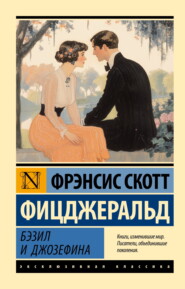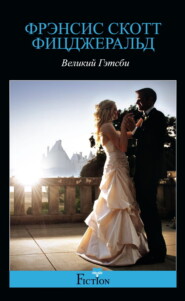По всем вопросам обращайтесь на: info@litportal.ru
(©) 2003-2024.
✖
The Last Tycoon / Последний магнат. Книга для чтения на английском языке
Настройки чтения
Размер шрифта
Высота строк
Поля
“So did I,” said Broaca. “I thought Em was very sympathetic.”
“Did you?” asked Stahr sharply. “I could just barely believe she was alive. And when I came to the end, I said to myself, ‘So what?[64 - So what? – (разг.) И что?]’”
“There must be something to do,” Reinmund said. “Naturally we feel bad about this. This is the structure we agreed on —”
“But it’s not the story,” said Stahr. “I’ve told you many times that the first thing I decide is the kind of story I want. We change in every other regard, but once that is set we’ve got to work toward it with every line and movement. This is not the kind of a story I want. The story we bought had shine and glow – it was a happy story. This is all full of doubt and hesitation. The hero and heroine stop loving each other over trifles – then they start up again over trifles. After the first sequence, you don’t care if she never sees him again or he her.”
“That’s my fault,” said Wylie suddenly. “You see, Monroe, I don’t think stenographers have the same dumb admiration for their bosses they had in 1929. They’ve been laid off – they’ve seen their bosses jittery. The world has moved on, that’s all.”
Stahr looked at him impatiently, gave a short nod.
“That’s not under discussion[65 - That’s not under discussion – (разг.) Это не обсуждается],” he said. “The premise of this story is that the girl did have dumb admiration for her boss, if you want to call it that. And there wasn’t any evidence that he’d ever been jittery. When you make her doubt him in any way, you have a different kind of story. Or rather you haven’t anything at all. These people are extraverts – get that straight – and I want them to extravert all over the lot. When I want to do a Eugene O’Neill[66 - Eugene O’Neill – Юджин О’Нил (1888–1953), американский драматург, нобелевский лауреат (1936)] play, I’ll buy one.”
Jane Meloney, who had never taken her eyes off Stahr, knew it was going to be all right now. If he had really been going to abandon the picture, he wouldn’t have gone at it like this. She had been in this game longer than any of them except Broaca, with whom she had had a three-day affair twenty years ago.
Stahr turned to Reinmund.
“You ought to have understood from the casting, Reiny, what kind of a picture I wanted. I started marking the lines that Corliss and McKelway couldn’t say and got tired of it. Remember this in the future – if I order a limousine, I want that kind of car. And the fastest midget racer you ever saw wouldn’t do. Now – ” He looked around. “ – shall we go any farther? Now that I’ve told you I don’t even like the kind of picture this is? Shall we go on? We’ve got two weeks. At the end of that time I’m going to put Corliss and McKelway into this or something else – is it worth while?”
“Well, naturally,” said Reinmund, “I think it is. I feel bad about this. I should have warned Wylie. I thought he had some good ideas.”
“Monroe’s right,” said Broaca bluntly. “I felt this was wrong all the time, but I couldn’t put my finger on it[67 - couldn’t put my finger on it – (разг.) не мог понять, что именно не так].”
Wylie and Jane looked at him contemptuously and exchanged a glance.
“Do you writers think you can get hot on it again?” asked Stahr, not unkindly. “Or shall I try somebody fresh?”
“I’d like another shot[68 - I’d like another shot – (разг.) Я хочу попробовать еще раз],” said Wylie.
“How about you, Jane?”
She nodded briefly.
“What do you think of the girl?” asked Stahr.
“Well – naturally I’m prejudiced in her favor.”
“You better forget it,” said Stahr warningly. “Ten million Americans would put thumbs down on that girl if she walked on the screen. We’ve got an hour and twenty-five minutes on the screen – you show a woman being unfaithful to a man for one-third of that time and you’ve given the impression that she’s one-third whore.”
“Is that a big proportion?” asked Jane slyly, and they laughed.
“It is for me,” said Stahr thoughtfully, “even if it wasn’t for the Hays ofifce. If you want to paint a scarlet letter on her back[69 - you want to paint a scarlet letter on her back – (разг.) хотите заклеймить ее как блудницу], it’s all right, but that’s another story. Not this story. This is a future wife and mother. However – however —”
He pointed his pencil at Wylie White.
“ – this has as much passion as that Oscar on my desk.”
“What the hell!” said Wylie. “She’s full of it. Why she goes to —”
“She’s loose enough,” said Stahr, “ – but that’s all. There’s one scene in the play better than all this you cooked up, and you’ve left it out. When she’s trying to make the time pass by changing her watch.”
“It didn’t seem to fit,” Wylie apologized.
“Now,” said Stahr, “I’ve got about fifty ideas. I’m going to call Miss Doolan.” He pressed a button. “ – And if there’s anything you don’t understand, speak up —”
Miss Doolan slid in almost imperceptibly. Pacing the floor swiftly, Stahr began. In the first place he wanted to tell them what kind of a girl she was – what kind of a girl he approved of here. She was a perfect girl with a few small faults as in the play, but a perfect girl not because the public wanted her that way but because it was the kind of girl that he, Stahr, liked to see in this sort of picture. Was that clear? It was no character role. She stood for health, vitality, ambition and love. What gave the play its importance was entirely a situation in which she found herself. She became possessed of a secret that affected a great many lives. There was a right thing and a wrong thing to do – at first it was not plain which was which, but when it was, she went right away and did it. That was the kind of story this was – thin, clean and shining. No doubts.
“She has never heard the word labor troubles,” he said with a sigh. “She might be living in 1929. Is it plain what kind of girl I want?”
“It’s very plain, Monroe.”
“Now about the things she does,” said Stahr. “At all times, at all moments when she is on the screen in our sight, she wants to sleep with Ken Willard. Is that plain, Wylie?”
“Passionately plain.”
“Whatever she does, it is in place of sleeping with Ken Willard. If she walks down the street she is walking to sleep with Ken Willard, if she eats her food it is to give her strength to sleep with Ken Willard. But at no time do you give the impression that she would ever consider sleeping with Ken Willard unless they were properly sanctified[70 - unless they were properly sanctified – (ирон.) без заключения брака]. I’m ashamed of having to tell you these kindergarten facts, but they have somehow leaked out of the story.”
He opened the script and began to go through it page by page. Miss Doolan’s notes would be typed in quintuplicate and given to them, but Jane Meloney made notes of her own. Broaca put his hand up to his half-closed eyes – he could remember “when a director was something out here,” when writers were gag-men or eager and ashamed young reporters full of whiskey – a director was all there was then. No supervisor – no Stahr.
He started wide-awake as he heard his name.
“It would be nice, John, if you could put the boy on a pointed roof and let him walk around and keep the camera on him. You might get a nice feeling – not danger, not suspense, not pointing for anything – a kid on the roof in the morning.”
Broaca brought himself back in the room.
“All right,” he said, “ – just an element of danger.”
“Not exactly,” said Stahr. “He doesn’t start to fall off the roof. Break into the next scene with it.”
“Through the window,” suggested Jane Meloney. “He could climb in his sister’s window.”
“That’s a good transition,” said Stahr. “Right into the diary scene.”
Broaca was wide-awake now.
“I’ll shoot up at him[71 - I’ll shoot up at him – (кино) Я дам его крупным планом],” he said. “Let him go away from the camera. Just a fixed shot from quite a distance – let him go away from the camera. Don’t follow him. Pick him up in a close shot and let him go away again. No attention on him except against the whole roof and the sky.” He liked the shot – it was a director’s shot that didn’t come up on every page any more. He might use a crane – it would be cheaper in the end than building the roof on the ground with a process sky. That was one thing about Stahr – the literal sky was the limit. He had worked with Jews too long to believe legends that they were small with money[72 - small with money – (разг.) мелочные, прижимистые].
“In the third sequence have him hit the priest,” Stahr said.
Вы ознакомились с фрагментом книги.
Приобретайте полный текст книги у нашего партнера:
Приобретайте полный текст книги у нашего партнера:

















